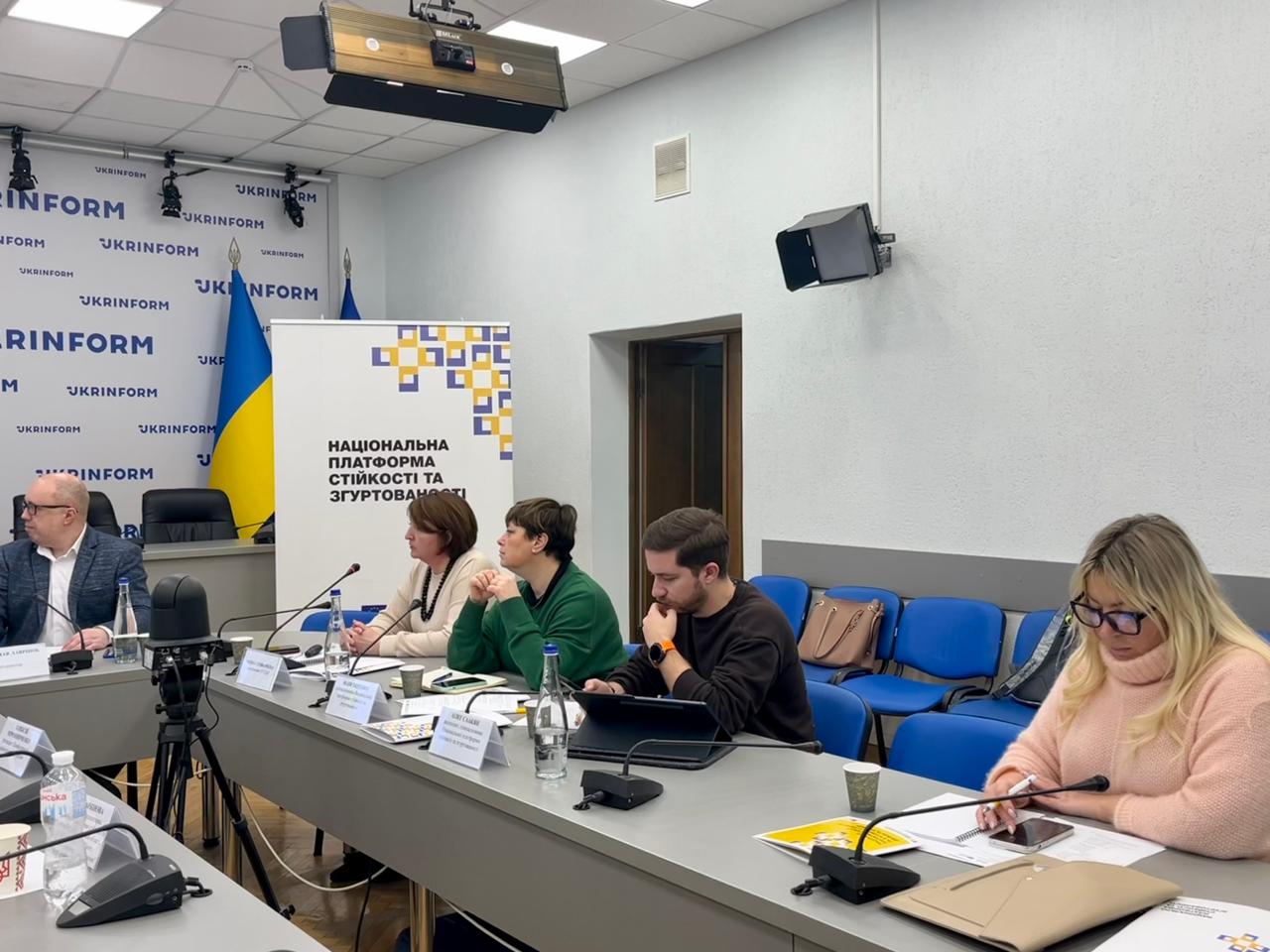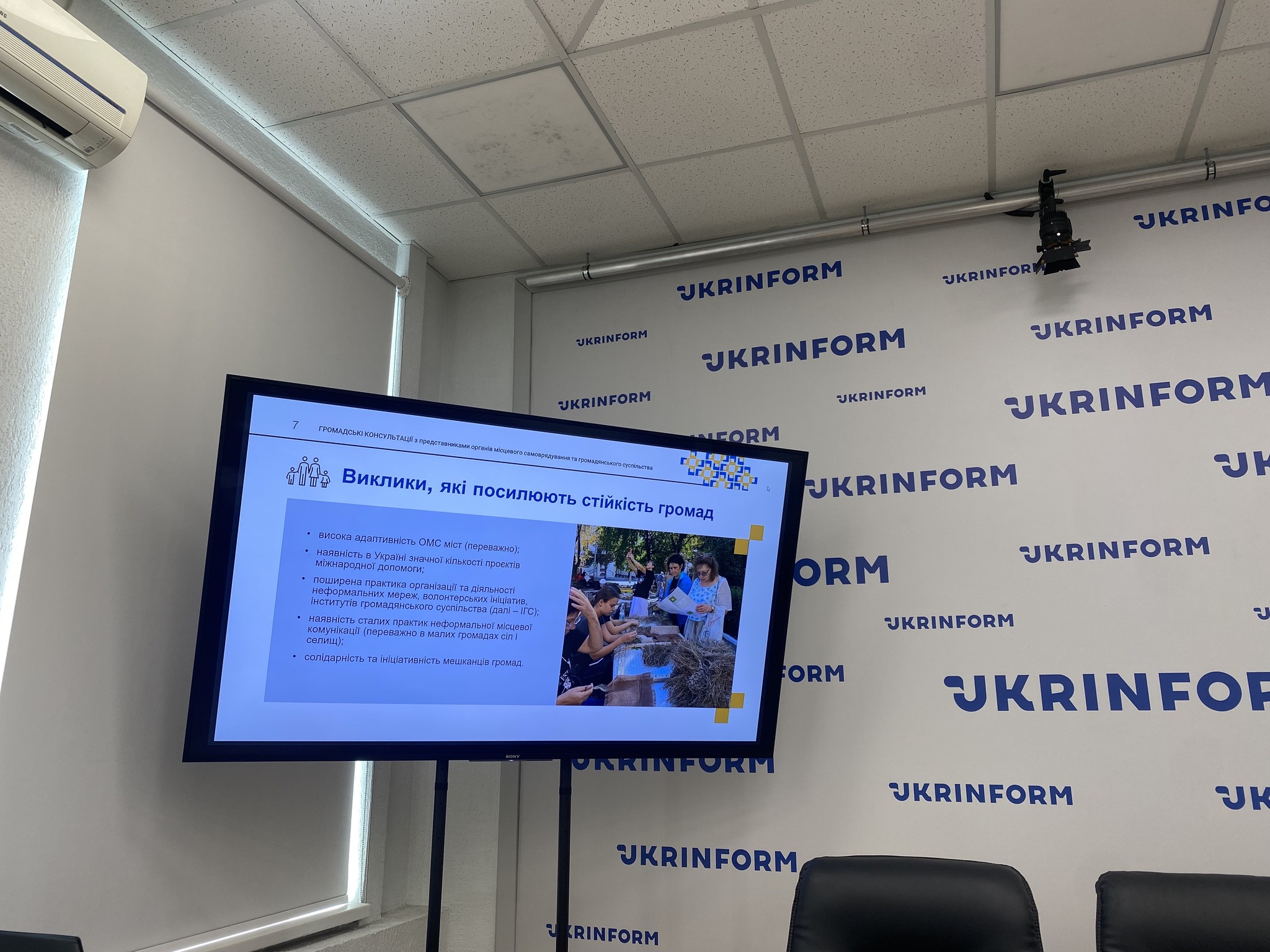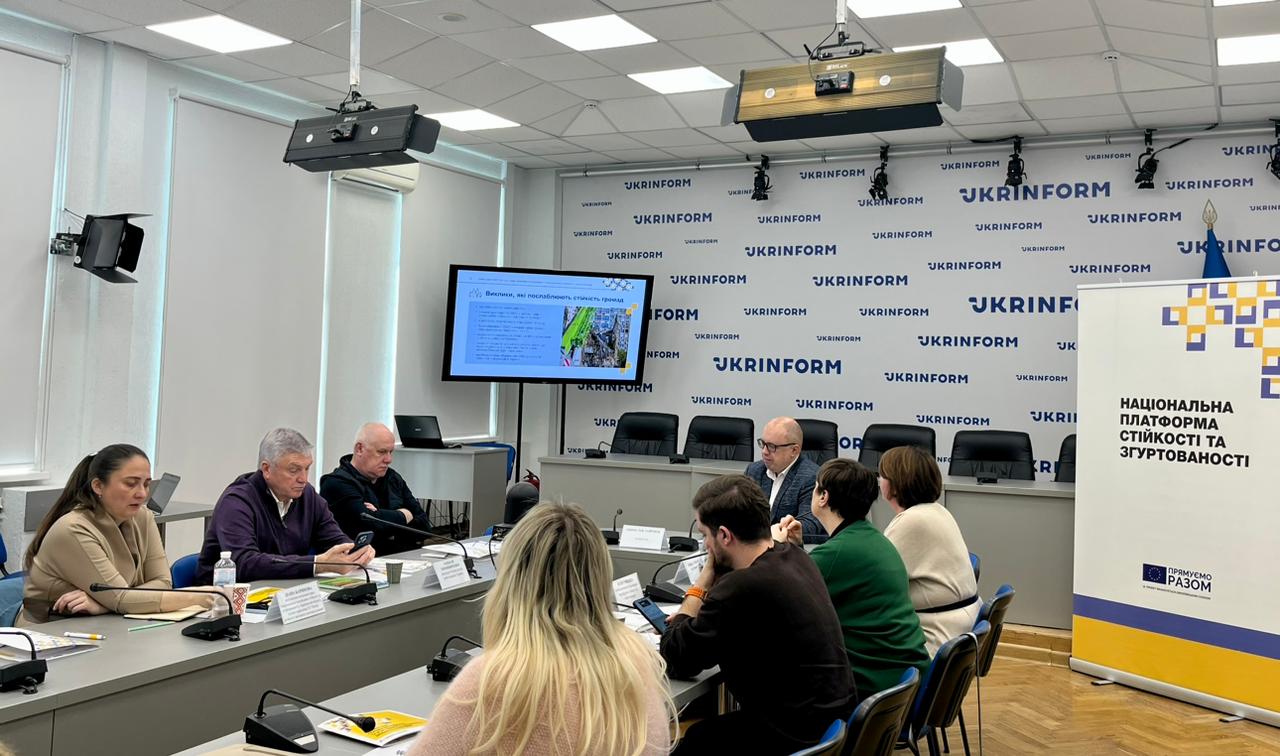Yulia Tyshchenko, co-founder of the National Platform, noted that working with communities and their residents is one component of the civilian resilience formula that helps solve problems in communities.
She made the remarks at a press conference titled “Key Factors in Strengthening and Weakening the Resilience of Ukrainian Communities: Research Results.”
According to her, Ukrainian local communities' resilience is based on actualized and strong social ties, solidarity, the high adaptability of local governments in crisis situations, and the use of participatory democracy.

In particular, the expert highlighted the challenges that weaken resilience: imperfect legislation, low adaptability of local governments in a war situation (mainly in rural and town communities), lack of strategic planning for communities, lack of communication between local governments and community residents, insufficient communication between the oblast military administrations and communities on civilian security issues, inadequate attention to the human rights of persons with disabilities and other low-mobility groups, unjustified restrictions on access to public information by local governments in Ukraine, as well as socio-economic and unemployment problems.
In her turn, UHHRU analyst Olena Semerkina highlighted the challenges that strengthen the resilience of communities.
These include the high adaptability of local authorities, the presence of a significant number of international assistance projects in Ukraine, the widespread practice of organizing and operating informal networks, volunteer initiatives, and civil society institutions, the existence of sustainable practices of informal local communication, and the solidarity and initiative of community residents.

At the same time, she noted that the study addressed fundamental civilian security issues: creation and arrangement of the civilian protection infrastructure, food, drinking water, fuel (energy), power and heating systems; availability (and quality) of warning systems; relocation (evacuation) of people, documents, businesses, institutions and organizations; interagency coordination; systematic training of personnel and training of civilians; acceptance and arrangement of IDPs, relocated institutions and enterprises, as well as the state of information provision to community residents.
She also presented the recommendations, which consider the Action Plan for implementing the National Resilience System concept.
In particular, the Verkhovna Rada, together with all-Ukrainian associations of local self-government bodies and communities, expert and human rights organizations, is recommended to continue analyzing the practice of applying the laws of Ukraine “On the Legal Regime of Martial Law” and “On Local Self-Government in Ukraine,” as well as to respond on time to the problems of budgeting the powers of local self-government bodies, and to promote the restoration of participatory democracy.
In turn, the government and the General Staff of the Armed Forces of Ukraine are recommended to introduce different warning systems (different sound signals) in natural and artificial emergencies and martial law, as well as to provide methodological support to military administrations and local authorities in fulfilling the requirements for warning and informing people with physical, mental, intellectual and sensory disabilities and other low-mobility groups (persons accompanying them).
At the same time, it is proposed to promote the dissemination of best community practices, provide methodological assistance in organizing community strategic planning, and, with the involvement of human rights organizations, provide advisory assistance to local authorities to explain the human rights of persons with disabilities and other low-mobility groups and issues of preventing and combating discrimination.

The oblast military administrations, together with the all-Ukrainian associations of local authorities and communities, is proposed to provide methodological assistance to local authorities in updating their decisions and, in the absence of such choices, in making decisions on civil protection of the population of communities, with the broad involvement of community residents in the development of such choices and monitoring their application.
The experts also recommend that the government, together with all Ukrainian associations of local authorities and communities, all-Ukrainian associations of employers' organizations, and all-Ukrainian trade unions, study the consequences of the war for the labor market, staffing of the CMAs and local authorities, prepare proposals for changing the situation in the field of employment during the war, ways to improve personnel policy at the regional level, and study the issue of forecasting the labor market in the post-war period.
At the same time, the Ukrainian Parliament Commissioner for Human Rights and the government are recommended to introduce continuous monitoring and provide methodological assistance in the application of international standards of access to information, principles of participatory democracy, and the Law of Ukraine “On Access to Public Information” by executive authorities and local governments.
The study was conducted in eight regions of Ukraine, which have different (conditional) levels of security and other experiences of war, namely Ivano-Frankivsk, Zakarpattia, Lviv, Zaporizhzhia, Kyiv, Sumy, Kharkiv, and Chernihiv regions.
Research methods included legal expertise ofі local authorities' decisions (if necessary, also of oblast military administration decisions), requests for access to public information, and unstructured interviews.
The National Platform is implemented by the UCIPR and UHHRU within the framework of the project “Ensuring Ukraine's Resilience in the Context of Increasing Risks and Consequences of War” with the financial support of the European Union.
